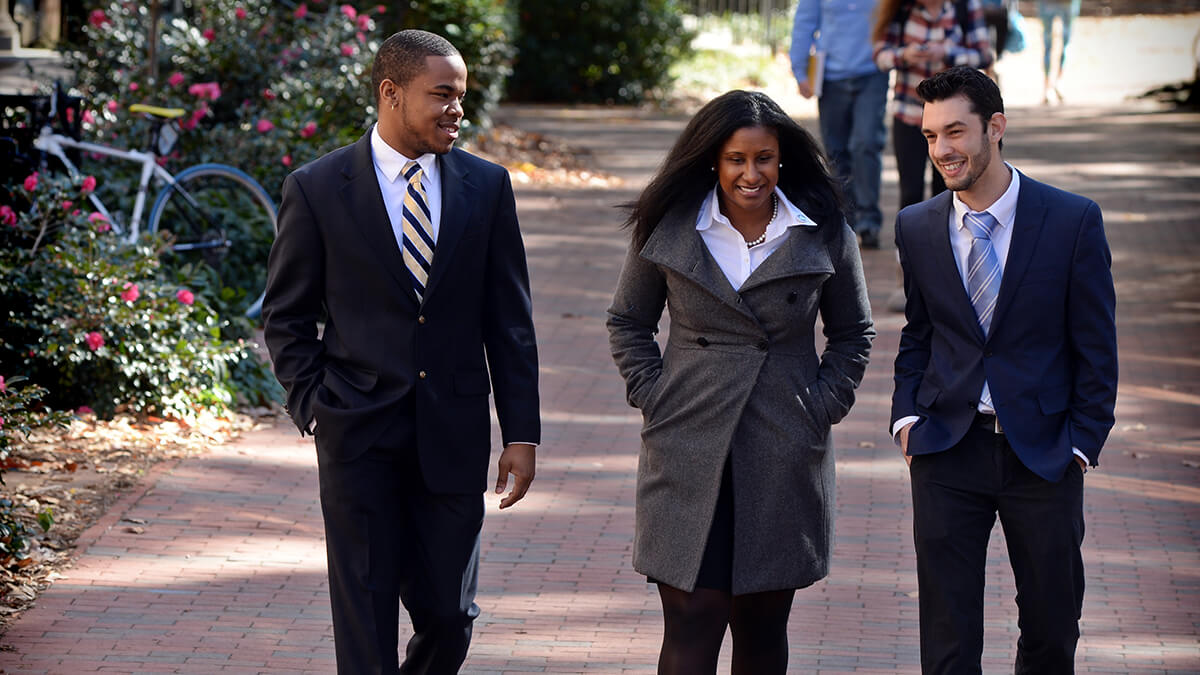Millennial Scholars also ‘brothers’
The Carolina Millennial Scholars Program provides support for minority male students at Carolina

Last spring, Samuel Marsan didn’t get any A’s.
It wasn’t like him. The psychology major, research assistant and honors student began to wonder if coming to Carolina was such a good idea.
“I honestly thought I wouldn’t graduate,” Marsan said.
Far from his family in Cuba, he grappled with economic difficulties and his identity. Amid the accepting climate of the University, he finally felt free to talk about his sexual orientation. He found himself struggling emotionally, which led to trouble concentrating in class.
His grades began to slide. But, through the Carolina Millennial Scholars Program (CMSP), he had a support system to get him back on track.
As part of a small group of minority male students making up the first cohort of CMSP scholars, Marsan had access to academic and networking opportunities, seminars on finances and success-seeking behaviors, and connections to researchers who shared his interested in substance abuse and organizational psychology.
Equally as important, he had a net.
He had mentors to look up to and a group of “brothers” to lean on, who accepted him without question though he had worried initially that he’d be alienated. He had Ada Wilson, director of Inclusive Student Excellence and one of the directors of CMSP, who helped him apply for jobs so he could stay at Carolina. Soon, he was focused in the lab and investigating graduate programs.
“It’s not only about the research experience and academic opportunities this program has given me, it’s also about support and community. It became a family, and through that, I was able to focus on school again,” Marsan said.
Tackling a troubling trend
CMSP engage, recruits, retainins and supports African American, American Indian and Latino males through graduation and beyond. Scholars apply to and enter the two-year program their first year at Carolina, and around 15 are accepted.
A 2010 retention study from Carolina’s Office of Undergraduate Retention showed UNC’s four-year graduation rate was 49.2 percent for black males, in contrast to a 70.8 percent graduation rate for white males. Retention rates of American Indian and Latino males were also low.
“These are exceptional young men who enter our university with strong records of academic performance and co-curricular engagement,” said Taffye Benson Clayton, vice provost and chief diversity officer. “The question is what happens when they arrive here, and this is a question that is being asked all over the nation.”
Marco Barker, senior director at UNC Diversity and Multicultural Affairs, added: “We know it’s not their deficit. If they got in here, they are outstanding students. Our efforts had to address the unique racial, ethnic and gender nuances of males of color on a university campus.”
Barker, who heads CMSP along with Wilson and Josmell Perez, coordinator for multicultural programs and the Carolina Latina/o Collaborative, said those nuances come to light in the different ways people approach college life. For instance, men are less likely to ask for help, which may keep them from accessing the abundant resources for academic success that Carolina has to offer all students.
“We know that, culturally, many men are taught that asking for help is a sign of weakness or vulnerability. We have to teach help-seeking behaviors and encourage young men to identify a problem, find solutions and start the steps,” Barker said.
Study abroad, undergraduate research opportunities and summer fellowships
National research and the work of other campus offices committed to these issues showed that one key to the success of minority males was the opportunity to be engaged in high-impact experiences, which CMSP provides. CMSP scholars are connected to study abroad, undergraduate research opportunities and summer fellowships.
Those experiences help students become more engaged, Barker said. “Getting connected helps them increase their confidence so they are much more proactive and self-aware about some of the resources and tools needed to be successful.”
Michael Morrison, a sophomore scholar, applied to CMSP because he wanted a group who could help him focus on success. During his first year at Carolina, CMSP exposed him to learning and testing techniques that he credits with giving him a steady start.
“One of the great things about this campus is that there are so many resources. But because there are so many, it can be easy to overlook them,” Morrison said. “Even though we’re a small group, we’re powerful, and we’re a great support system for one another.”
Read more from the University Gazette.




